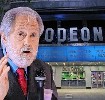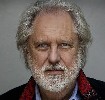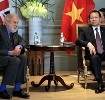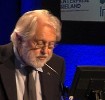Oscar-winning film producer Lord David Puttnam is presenting a series of free lectures at the University of Sunderland, designed to inspire people to become involved in the creative industries.
His latest lecture – British Film; That’ll Be The Day to Arctic 30 – will describe his personal journey through British Cinema from the 1970s through to his current project – a new film Arctic 30, based on the true-life experiences of Greenpeace protesters.
Taking place at the David Puttnam Media Centre Cinema, Sir Tom Cowie Campus at St Peter’s, on Friday, October 2, 11am-1pm, this free lecture is open to all.
Lord Puttnam, who spent time in the 1980s as the head of Columbia Pictures in Hollywood, will explore the evolution of the film industry from his early productions such as That’ll Be The Day and Bugsy Malone to the present day. He’ll also reflect on the influences which impact on his own love of the movie industry. He will deliver the session via live satellite link and will include a number of film clips.
Lord Puttnam is a former politician and was the very first Chancellor of the University of Sunderland. He remains the only British filmmaker to have run a Hollywood studio, Columbia Pictures.
Places must be booked for the lecture in advance by contacting Amy Callaghan on 0191 515 2637 or amy.callaghan@sunderland.ac.uk
Source: University of Sunderland News Archive – September 29, 2015
 Tweet David Puttnam @DPuttnam
Tweet David Puttnam @DPuttnam 




















